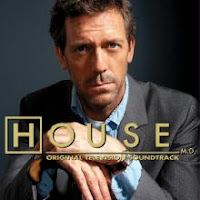 For those of you who don't know, the Hay Plain is a huge strip of road that connects Adelaide and Sydney and Canberra. It's a couple hundred kms of road, that in places is just plain straight for kms on end.
For those of you who don't know, the Hay Plain is a huge strip of road that connects Adelaide and Sydney and Canberra. It's a couple hundred kms of road, that in places is just plain straight for kms on end.It's a very desolate place, and as we were driving it, I found myself able to pray and think really clearly, because there was nothing to distract me and a thought struck me that I'd never considered before. One of the advantages of desert experiences, and, I think, one of the reasons they are so powerful is because there are no distractions. As we move into the desert (whether that is literally or figuratively) we move away from the distractions that stop us thinking clearly, hearing clearly, praying clearly.
The other thing that hit me is that the purpose of spiritual disciplines (including the discipline of simplicity) is to take us into the desert - into places where we can move away from distractions, and hear, listen and pray.
